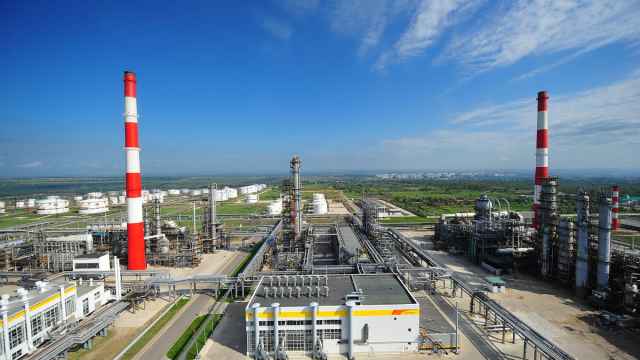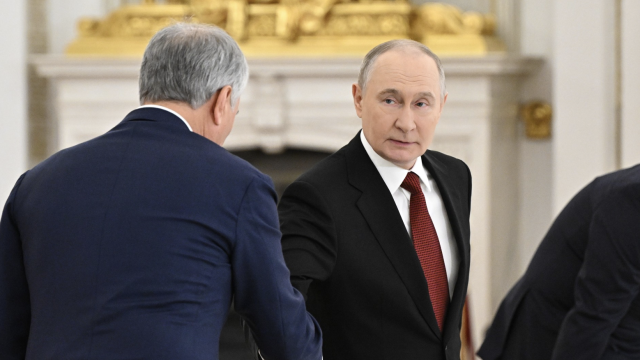Oil projects led by foreign majors under production-sharing agreements, or PSAs, propelled Russian crude output, already the world's largest, to a new post-Soviet record high in September, Tuesday's Energy Ministry data showed.
Output edged up 0.3 percent from August to reach 10.41 million barrels per day, encouraged by price increases.
In tons, Russia's crude production stood at 42.6 million last month, the ministry said. The country is set to increase oil production this year to between 514 million and 515 million tons from 511 million tons in 2011.
On Tuesday, Economic Development Minister Andrei Belousov said Russia's oil production is likely to remain roughly unchanged through the end of the decade, while exports would be squeezed by rising domestic demand.
Oil production under PSAs, a scheme designed in the 1990s, rose 5.6 percent in September month on month to 1.1 million tons. PSA projects include Sakhalin-1, involving Rosneft, ExxonMobil, ONGC and Sodeco; Sakhalin-2, involving Gazprom, Shell, Mitsui and Mitsubishi; and Kharyaga, involving Total, Statoil and Zarubezhneft.
"The main contributor to the growth was PSA, where production of gas condensate increased due to seasonality. It's not immediately clear where exactly the output increased. They don't disclose the data separately for now," said Sergei Vakhrameyev, an analyst for IFC Metropol.
Production at the troubled Anglo-Russian venture TNK-BP, half-owned by BP, declined almost 1 percent in September as production ramp-ups at new fields failed to offset output declines at mature West Siberian deposits.
BP has put its 50 percent stake in TNK-BP up for sale amid a spat with the AAR consortium of Soviet-born billionaires who own the other half of the venture. Some top managers, including the chief oil trader, have quit TNK-BP amid the standoff.
"It's not immediately clear if the production decline is directly connected to the conflict. But if the management is leaving the company, this, of course, has a negative impact on production," Vakhrameyev said.
Russia's oil output stayed above the 10 million bpd pumped by Saudi Arabia last month, while total OPEC crude production fell in September because of reduced exports from Angola and Nigeria, despite pledges to ramp up output to stem price increases.
Prices for Brent crude hovered above $112 per barrel, a level seen as unbearably high by the oil-consuming countries, where economies have been suffering from expensive commodities. Russia and OPEC are keen to bolster their ties in the face of increased oil price volatility.
Russia's daily gas production jumped 15 percent month on month to 1.67 billion cubic meters thanks to a spike in seasonal demand, while gas output at Gazprom increased 17 percent.
A Message from The Moscow Times:
Dear readers,
We are facing unprecedented challenges. Russia's Prosecutor General's Office has designated The Moscow Times as an "undesirable" organization, criminalizing our work and putting our staff at risk of prosecution. This follows our earlier unjust labeling as a "foreign agent."
These actions are direct attempts to silence independent journalism in Russia. The authorities claim our work "discredits the decisions of the Russian leadership." We see things differently: we strive to provide accurate, unbiased reporting on Russia.
We, the journalists of The Moscow Times, refuse to be silenced. But to continue our work, we need your help.
Your support, no matter how small, makes a world of difference. If you can, please support us monthly starting from just $2. It's quick to set up, and every contribution makes a significant impact.
By supporting The Moscow Times, you're defending open, independent journalism in the face of repression. Thank you for standing with us.
Remind me later.





